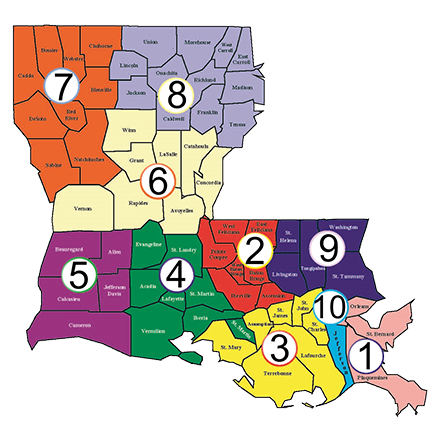MIH Program Treats 96% of Medicaid Patients Without Transport
State Medicaid Embraces MIH to Alleviate Stress on ED and Address Professional Shortage
Louisiana faces significant, state-wide healthcare challenges. Emergency rooms are overcrowded, and ambulance crews are stretched thin. Patients on Medicaid need care, but providers struggle to meet that need; in fact, according to the Louisiana Department of Health (LDH), 57 of the state’s 64 parishes are Health Professional Shortage Areas. In addition, the Medicaid patients who call 911 the most – the “super-utilizers” – often have underlying issues that emergency treatment doesn’t address, such as a lack of social support, food instability, or a lack of transportation.
Acadian Health, based in Lafayette, Louisiana, is working to address these challenges. They provide alternate acute care for “sick but stable” patients, as well as working with patient’s to 
The pilot program leverages Acadian Health’s MIH programs to provide acute and in-home care. Acadian Health works with Managed Care Organizations (MCOs) to identify Medicaid super-utilizers (patients who have called 911 five or more times in the last year). Rather than calling 911, super-utilizer patients can call their primary care provider instead, and an Acadian care team member will arrive within an hour to assess the patient’s condition in their home and provide treatment and/or transport as necessary. The MIH team also checks for non-medical and quality-of-life issues by conducting a general risk assessment within HealthCall. They may enroll the patient in a follow-up program to help address any issues found, acting as an extension of their primary care provider to enable in-home care and education.
Acadian Health has found that in 96% of acute care cases the patient’s condition is “sick but stable”, and can be treated without a hospital transport. As a result, emergency department visits drop substantially, patients receive more comprehensive care in the comfort of their own home, and the average cost of such incidents drops by about $1,000.
Jeremy Coombs, Senior Director of Operations at Acadian Health, said when discussing their successes, the key to a sustainable mobile integrated health program is collecting data to demonstrate your success. It may be common knowledge that your program improves lives and saves money, but a program needs concrete data to maintain sustainable reimbursement and build strong partnerships. It’s also important to know exactly what metrics your partners are using to measure success and make sure to collect that data. For example: in 2024 Acadian Health worked with a patient population in Texas and learned that an important metric was total ambulance use over nine months. After nine months, they had the data to show a 92% reduction in ambulance use, and the success story became a compelling argument for their program.
Of course, compiling data is easier said than done, but Acadian Health relies on HealthCall to ensure that the data they collect is secure and easy to report. When collecting patient data, Acadian uses a custom suite of care-specific SMART Chart assessments, which they mix and match to suit each patient’s situation, complete with decision support tools and a touch-friendly interface. A series of reports can be generated on demand or scheduled to run periodically. For example, the scorecard report summarizes referrals, encounters by type, duration of visits, transports, patient satisfaction, and more. These reports can be securely shared with providers and MCOs through the HealthCall interface. For more seamless care coordination, they use the HealthCall Care Network, where they can share secure, real-time access to a patient’s HealthCall record with any MCO, care provider, or other specialist.
This six-month pilot program with the Louisiana Department of Health (LDH) launched in February 2025. The need is clear: according to the LDH’s Bureau of Health Services Financing, 
Unfortunately, Louisiana is not alone in its struggles. According to the U.S. Department of Health and Human Services, all fifty states have some degree of health professional shortage. If you face some of the same challenges, we hope the success of this program is inspiring, instructive, and a compelling argument for the benefits that mobile integrated health (MIH) provides.
For more information, please contact:
Sara Bruner
sbruner@healthcall.com
HealthCall, LLC
